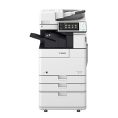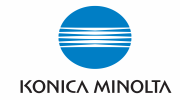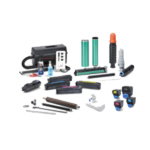
Too much alcohol affects your speech, muscle coordination and vital centers of your brain. A heavy drinking binge may even cause a life-threatening coma or death. This is of particular concern when you’re taking certain medications that also depress the brain’s function. Recovering from depression and AUD is difficult because the disorders can worsen one another.
Treatment for Co-Occurring Depression and Alcohol Use Disorder

The research needs more representation of women to increase understanding of the sex differences and to better characterize the mechanisms underlying women’s heightened vulnerability for depressive disorders. These populations experience disparities in access to https://ecosoberhouse.com/article/cognitive-dissonance-treatment-in-sober-living/ care for AUD and depressive disorders but are underrepresented in studies of these disorders. 2019 research suggests that depressive disorders are more common in people with alcohol dependence than in those who engage in alcohol misuse, like binge drinking. However, both alcohol dependence and alcohol misuse fall under the AUD umbrella.

Articles

A 2019 review reveals that depressive disorders are the most common mental health disorders in people with AUD. And drinking alcohol, which depresses the central nervous system, can lead to more depressed feelings in those already suffering from depressive and other mood disorders. Nearly one-third of people with major depression (or major depressive disorder) also have alcohol use disorder. Research shows that depressed children are more likely to have problems with alcohol a few years down the road.
Depression After Drinking
- But clinical depression isn’t just a matter of feeling the occasional ups and downs or periodic sadness caused by issues of daily life.
- Binge drinking is when you drink a lot of alcohol in one day — more than 8 units of alcohol per day for men and more than 6 units of alcohol per day for women, with 1 unit of alcohol being equal to half a pint.
- One in five workers in Ireland are struggling with illegal substance use, according to a healthcare survey.
Alcohol use disorder can include periods of being drunk (alcohol intoxication) and symptoms of withdrawal. In addition, attempting to stop drinking and going through withdrawal can worsen depression, making it even harder to quit. Alcohol use disorder alcohol and depression (AUD) can occur alongside depression and vice versa.

Similar articles

For example, a person with frequent episodes of severe depression may turn to drinking to self-medicate. People who frequently drink are more likely to experience episodes of depression, and they may drink more in an attempt to feel better. Drinking persistently and excessively can increase your risk of developing a major depressive disorder. It can also aggravate symptoms of pre-existing depression and endanger your health and mental health. The more you drink the greater your tolerance for alcohol, meaning you need to drink more alcohol to get the same feeling. If you rely on alcohol to mask feelings of depression, you may find you become reliant on it – putting you at risk of alcohol dependence.
Ethnic diversity and health outcomes
- Some 16% of employees in Ireland said they were addicted to or have an unhealthy relationship with Class A or illicit drugs, while two in five workers reported having an addiction or an unhealthy relationship with at least one substance.
- Declaration of competing interest All data were generated in-house, and no paper mill was used.
- In small to moderate amounts, alcohol can temporarily lift your spirits and help improve your mood.
- For many people, feeling sad or unhappy is a prominent symptom of depression.
- No matter your drink of choice, alcohol can easily be abused and often is, especially when it’s used to self-medicate.
Several studies suggest that military veterans are more likely to experience depression, post-traumatic stress disorder (PTSD), and misuse alcohol. It can be tempting to drink if you’re feeling unhappy, but there’s a better solution out there. When treating depression and substance abuse, consult with a mental health professional and/or an addiction specialist who can provide resources and recommendations for possible treatment options. If you experience symptoms of depression for most of the day, every day, for a few weeks, the NHS advises you to contact your GP surgery to get help. And if you’re worried about your drinking, there are alcohol support services that can help. If you don’t have alcohol dependence, you can stop drinking alcohol.






















